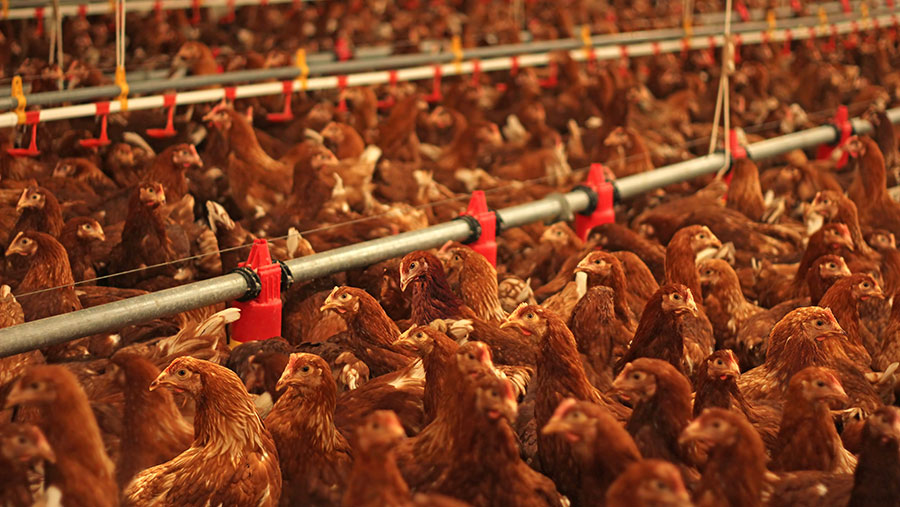New UK-wide housing order for poultry as avian flu spreads
 © Branex/Adobe Stock
© Branex/Adobe Stock Poultry keepers across the UK – be they backyard or commercial – will be required to house all their birds from Monday 29 November as the number of cases of avian influenza grows.
The Animal and Plant Health Agency confirmed on Wednesday 24 November that three new cases on premises in North Yorkshire were highly pathogenic strains of H5N1 avian influenza – bringing the UK total number of cases to 17.
The new housing measures mean it will be a legal requirement for all bird keepers to keep their birds indoors, and to follow strict biosecurity measures, to protect them from wild birds migrating to the UK from mainland Europe.
See also: Avian influenza prevention tips and how to handle an outbreak
Steps to be taken by all poultry keepers
- House or net all poultry and captive birds to keep them separate from wild birds
- Cleanse and disinfect clothing, footwear, equipment and vehicles before and after contact with poultry and captive birds – if practical, use disposable protective clothing
- Reduce the movement of people, vehicles or equipment to and from areas where poultry and captive birds are kept, to minimise contamination from manure, slurry and other products
- Use effective vermin control
- Thoroughly cleanse and disinfect housing on a continuous basis
- Keep fresh disinfectant at the right concentration at all farm and poultry housing entry and exit points
- Make sure all feed and water is not accessible to wild birds
Government chief veterinary officers are encouraging bird keepers to use the next five days to prepare for the new housing measures, including taking steps to safeguard animal welfare, consult their vet and put up additional housing where necessary.
In a joint statement they said: “We have taken swift action to limit the spread of the disease. Whether you keep just a few birds or thousands, from Monday 29 November onwards you will be legally required to keep your birds indoors, or take appropriate steps to keep them separate from wild birds.”
The move follows the introduction of housing measures in parts of North Yorkshire on Sunday 21 November.
Where housing is not practical, poultry keepers may use netting to keep their flock separate from wild birds.
Public health advice remains that the risk to human health from the virus is very low, and food standards bodies insist that avian influenzas pose a very low food safety risk for UK consumers.
Free-range hens that have to be housed are allowed to retain the free-range status for their eggs.
Further advice
If you find dead swans, geese, ducks or other wild birds, you should report them to the Defra helpline on 03459 33 55 77.
- Bird keepers should report suspicion of disease in England to Defra Rural Services Helpline on 03000 200 301.
- In Wales, contact 0300 303 8268.
- In Scotland, contact your local field services office.
- In Northern Ireland, contact Daera on 0300 200 7840.
